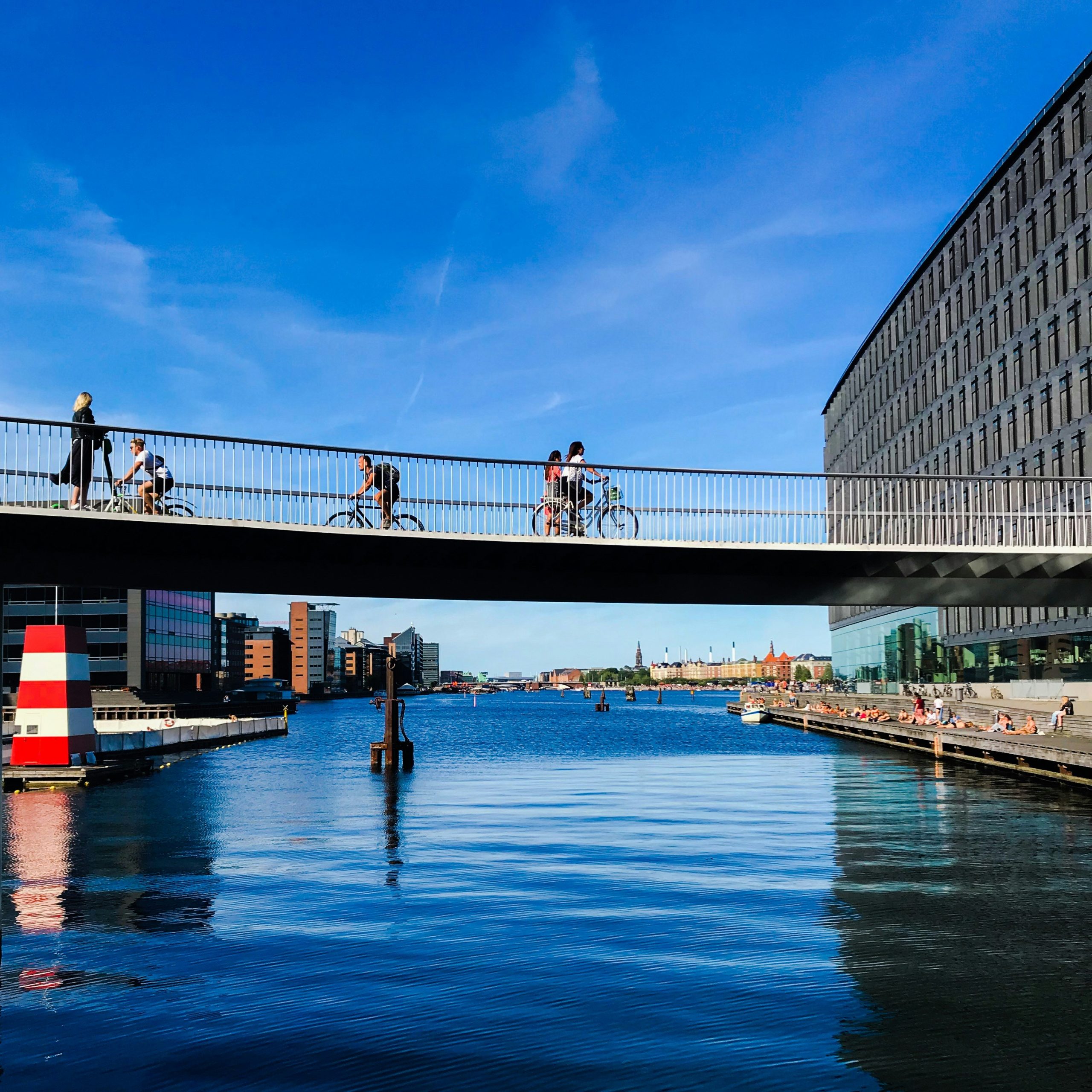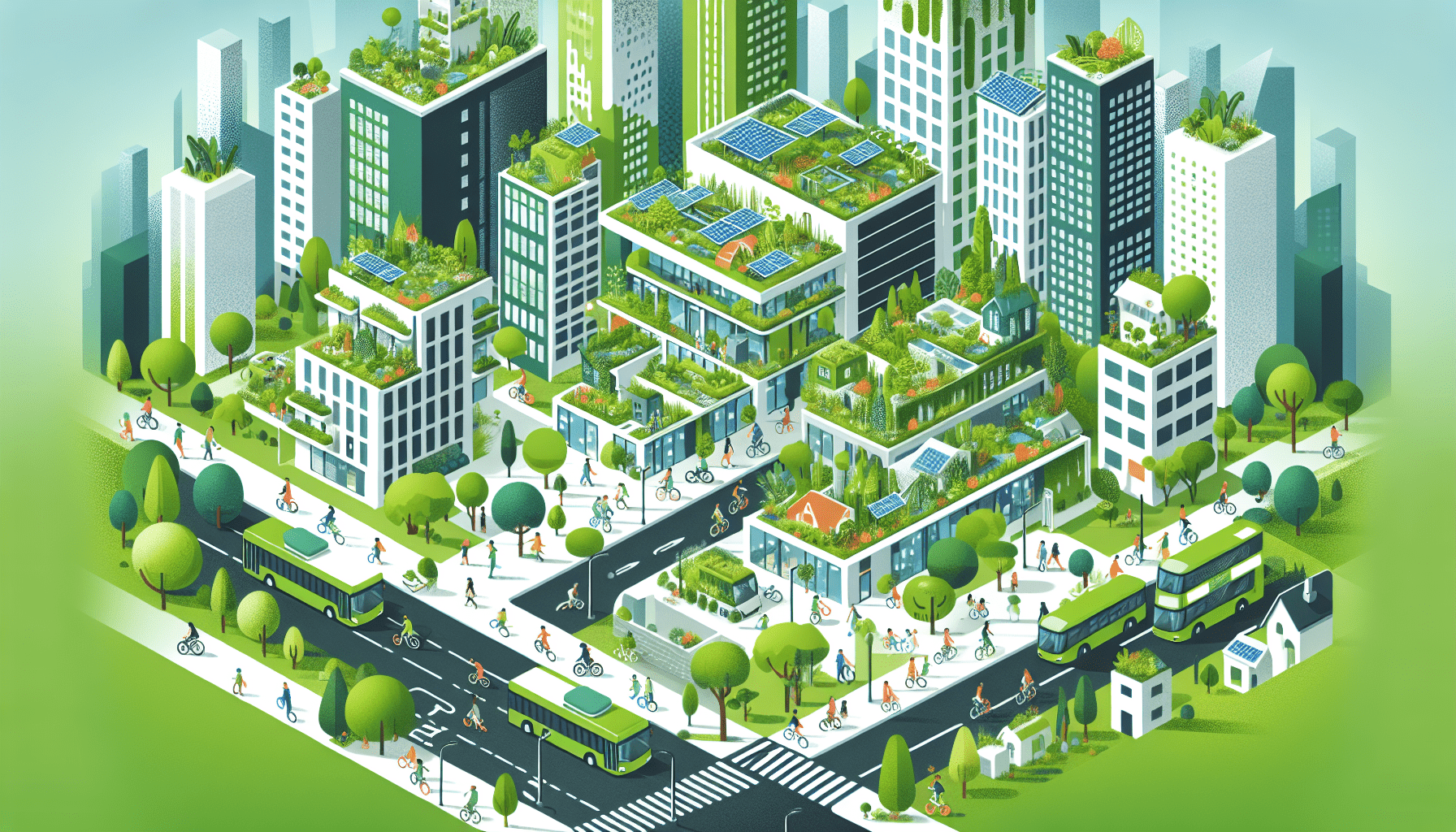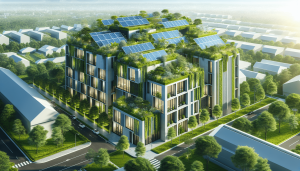Exploring the Benefits of Sustainable Urban Planning
In our journey to create greener, more livable cities, we discover the immense advantages of sustainable urban planning. By thoughtfully designing urban spaces, we can significantly enhance the quality of life for all residents. It’s not just about reducing carbon footprints; it’s also about fostering communities that prioritize health, wellness, and long-term resilience. Sustainable urban planning offers us the potential to build cities that are not only environmentally friendly but also economically vibrant and socially inclusive. Let’s delve into the myriad benefits this approach brings to our urban landscapes. What are the benefits of sustainable urban planning? This question might seem straightforward, but the answer is layered with numerous advantages that affect our environment, economy, and social well-being. Let’s explore this multifaceted concept and why it matters for our communities, both present and future.

Understanding Sustainable Urban Planning
What is Sustainable Urban Planning?
At its core, sustainable urban planning involves designing cities in ways that promote environmental health, economic prosperity, and social equity. This means integrating natural spaces, reducing energy consumption, encouraging efficient public transportation, and fostering community ties, among other goals.
Why is it Important?
Sustainable urban planning is crucial because the way our cities are designed profoundly affects our daily lives. The organization of urban spaces determines how we move, live, work, and interact with each other and our environment. Poor planning can lead to various issues like traffic congestion, pollution, and unequal access to resources. Good planning, on the other hand, can enhance the quality of life for everyone.
Environmental Benefits
Reducing Carbon Footprint
One of the most significant environmental benefits of sustainable urban planning is the reduction of our carbon footprint. By promoting the use of renewable energy sources, encouraging public transportation, and creating walkable cities, we can significantly cut down greenhouse gas emissions.
| Method | Impact on Carbon Footprint |
|---|---|
| Public transportation | Decreases use of personal vehicles, reducing emissions. |
| Renewable energy | Lowers reliance on fossil fuels. |
| Walkable cities | Encourages walking and cycling, reducing vehicle usage. |
Enhancing Biodiversity
Green spaces are an integral part of sustainable urban planning. These areas not only provide recreational spaces for residents but also serve as vital habitats for various plant and animal species. By incorporating parks, green roofs, and urban gardens, we can enhance urban biodiversity.
Water Management
Effective water management is another critical aspect. Sustainable urban planning includes the use of permeable surfaces, rain gardens, and sustainable drainage systems to reduce the risk of flooding and ensure clean water supplies.
Economic Benefits
Job Creation
Investing in sustainable urban planning initiatives often results in job creation. Whether it’s through the development of green buildings, installation of renewable energy systems, or expansion of public transit infrastructure, these projects require a skilled workforce, generating employment opportunities.
Cost Savings
Sustainable practices can also lead to significant cost savings. For residents, this might mean lower utility bills due to energy-efficient homes and reduced transportation costs. For local governments, sustainability can equate to decreased healthcare costs from a healthier population and lower infrastructure maintenance fees.
Attracting Investments
Cities known for their sustainable practices are increasingly attracting businesses and investments. Companies seeking to bolster their environmental credentials are more likely to set up operations in cities that align with their values, bringing in economic growth and development.
Social Benefits
Health and Well-being
The health benefits derived from sustainable urban planning cannot be understated. Cleaner air, increased physical activity from walkable cities, and access to green spaces all contribute to the physical and mental well-being of residents.
Social Equity
Sustainable urban planning also plays a pivotal role in promoting social equity. By ensuring all residents have access to resources such as public transport, quality housing, and healthcare, we can build more inclusive communities.
Stronger Community Ties
Well-designed urban spaces encourage social interaction and community engagement. Whether it’s through community gardens, public parks, or communal spaces, people are more likely to form stronger bonds in environments that support social interaction.

Strategies for Sustainable Urban Planning
Mixed-Use Development
Mixed-use development is a key strategy, which involves integrating residential, commercial, and recreational spaces within close proximity. This reduces the need for long commutes, promotes local businesses, and fosters a sense of community.
Green Building Practices
Implementing green building practices is another important strategy. This includes using sustainable materials, optimizing energy efficiency, and incorporating renewable energy sources in construction projects.
Efficient Public Transportation Systems
Developing efficient public transportation systems can drastically reduce the city’s reliance on personal vehicles, thereby cutting down emissions and easing traffic congestion. This includes expanding bus routes, building metro systems, and encouraging cycling through dedicated bike lanes.
Community Involvement
For urban planning to be truly sustainable, community involvement is essential. This means engaging with residents, listening to their needs, and incorporating their feedback into the planning process. When people feel heard and valued, they are more likely to support and participate in sustainable initiatives.
Case Studies
Copenhagen, Denmark
Copenhagen is often hailed as a model of sustainable urban planning. The city has committed to becoming carbon-neutral by 2025, with a focus on renewable energy, cycling infrastructure, and efficient waste management systems. Copenhagen’s integrated public transport system and extensive bike paths have significantly reduced car dependency, setting a global benchmark for sustainable mobility.
Curitiba, Brazil
Curitiba is another exemplary case. The city is renowned for its innovative public transport system, with dedicated bus lanes that reduce traffic congestion and pollution. Additionally, Curitiba’s focus on green spaces has earned it the nickname, “Green Capital of Brazil,” providing residents with numerous parks and recreational areas.
Portland, Oregon, USA
Portland has made significant strides in sustainable urban planning with its extensive network of bike lanes, investment in light rail systems, and commitment to green building practices. The city’s urban growth boundary has helped control urban sprawl, preserving natural areas and promoting higher urban density.

Overcoming Challenges
Funding and Budget Constraints
One of the biggest challenges in implementing sustainable urban planning is funding. Sustainable projects often require significant upfront investment, which can be a hurdle for many cities. However, the long-term economic, environmental, and social benefits often outweigh the initial costs.
Political Will
Achieving sustainable urban planning requires strong political will. Local leaders must be committed to making tough decisions that prioritize sustainability over short-term gains. Gaining public support and providing education about the long-term benefits are crucial steps in this process.
Balancing Growth and Sustainability
Finding the right balance between growth and sustainability is another challenge. Cities need to grow and develop to remain economically viable, but this growth must be managed in ways that do not compromise environmental health or social equity.
The Future of Sustainable Urban Planning
Smart Cities
The advent of technology has given rise to the concept of smart cities, where digital tools are used to manage urban resources efficiently. From smart grids to sensor-based waste management systems, technology can play a significant role in achieving sustainability goals.
Climate Resilience
As climate change becomes an increasingly pressing issue, cities must focus on climate resilience. This includes building infrastructure that can withstand extreme weather events and implementing policies that mitigate the effects of climate change.
Global Collaboration
Finally, international collaboration is vital. Cities around the world can learn from each other’s successes and failures. By sharing knowledge, resources, and strategies, we can collectively move towards a more sustainable future.

Conclusion
Exploring the benefits of sustainable urban planning reveals its profound impact on environmental health, economic prosperity, and social well-being. From reducing our carbon footprint to fostering community ties, the advantages are extensive and far-reaching.
By understanding the importance and implementing effective strategies—and learning from cities that have successfully adopted sustainable practices—we can create urban spaces that are not only livable but also thrive for future generations.
Let’s embrace the principles of sustainable urban planning and work together towards creating a better, more sustainable world for us all.



